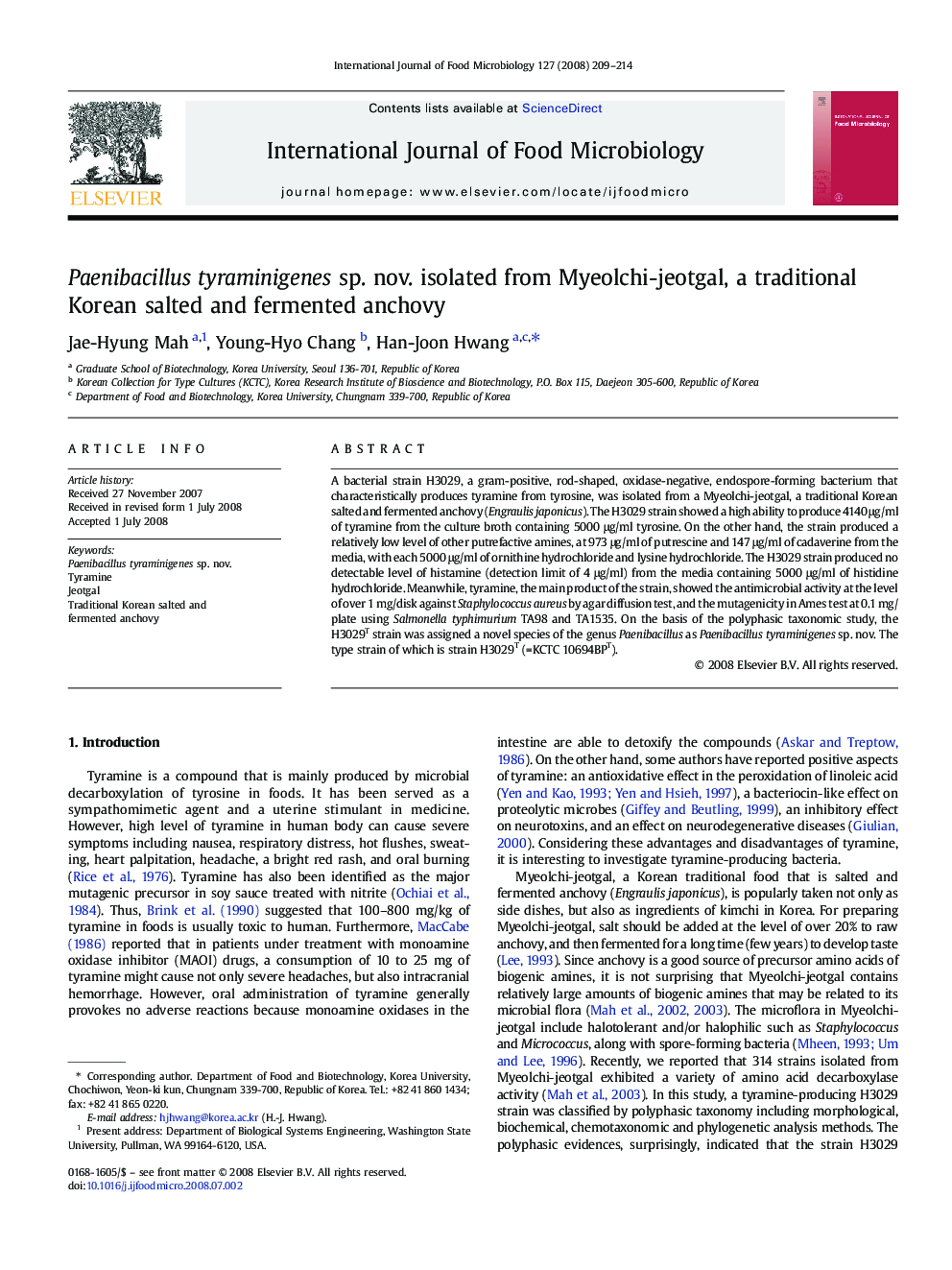| Article ID | Journal | Published Year | Pages | File Type |
|---|---|---|---|---|
| 4369764 | International Journal of Food Microbiology | 2008 | 6 Pages |
A bacterial strain H3029, a gram-positive, rod-shaped, oxidase-negative, endospore-forming bacterium that characteristically produces tyramine from tyrosine, was isolated from a Myeolchi-jeotgal, a traditional Korean salted and fermented anchovy (Engraulis japonicus). The H3029 strain showed a high ability to produce 4140 μg/ml of tyramine from the culture broth containing 5000 μg/ml tyrosine. On the other hand, the strain produced a relatively low level of other putrefactive amines, at 973 μg/ml of putrescine and 147 μg/ml of cadaverine from the media, with each 5000 μg/ml of ornithine hydrochloride and lysine hydrochloride. The H3029 strain produced no detectable level of histamine (detection limit of 4 μg/ml) from the media containing 5000 μg/ml of histidine hydrochloride. Meanwhile, tyramine, the main product of the strain, showed the antimicrobial activity at the level of over 1 mg/disk against Staphylococcus aureus by agar diffusion test, and the mutagenicity in Ames test at 0.1 mg/plate using Salmonella typhimurium TA98 and TA1535. On the basis of the polyphasic taxonomic study, the H3029T strain was assigned a novel species of the genus Paenibacillus as Paenibacillus tyraminigenes sp. nov. The type strain of which is strain H3029T (= KCTC 10694BPT).
